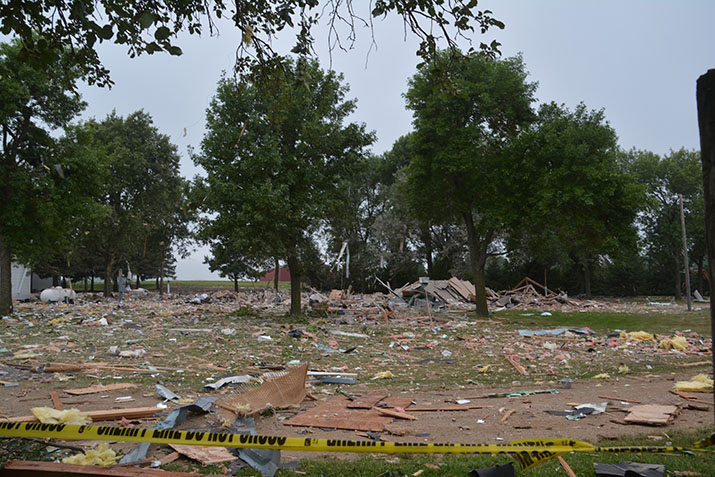How the smell of rotten eggs could save your life
Dec. 17, 2020

A gas leak from a damaged liquid propane line caused the August explosion that killed two people in their Marshall, Minnesota, home. A new septic system was installed at the house the week of the explosion. The gas leak was likely from a pipe repaired during the work that had later separated.
You know that odor you sometimes smell when you go to start a burner on a gas stove but it doesn’t light right away? The one that smells like rotten eggs or sulfur? That’s gas you’re smelling. Which can be confusing since natural gas and liquid propane don’t actually have a smell. Gas companies add a chemical called mercaptan to natural gas and liquid propane, which produces the sulfur-like smell so that you’ll know if there’s a leak of potentially explosive gas.
That smell could save your life. So could a combustible-gas alarm.
Why would you need an alarm to alert you to dangerous levels of an explosive gas when that distinct smell should be more than enough to let you know something is wrong?
Some people have reported getting desensitized to the smell of mercaptan in natural gas and liquid propane. Combustible-gas alarms aren’t required by law, but they’ll cost you about $17 to $20 at a hardware store.
When fuels like liquid propane and natural gas leak, sometimes all it takes to ignite them is a spark from your furnace or water heater igniting. That’s why it’s essential, when you become aware of a leak, to leave the house immediately and dial 911 only after you’re safely out. A static spark from your finger could also ignite natural gas and many other gases, so don’t turn off the lights on your way out, either.
The best way to stay safe from fuel leaks, however, is to prevent them from happening in the first place. Here are some essential tips to follow:
When you get a new gas appliance, carefully follow all the manufacturer’s instructions for installing, using and maintaining it.
If you or a professional remove a gas appliance from your home, make sure the gas line is capped. Just turning off the gas isn’t enough, because the valve could get bumped, causing gas to leak into your home.
Anytime any gas equipment needs work, be sure to hire a qualified technician.
The number of deaths due to gas-related explosions in Minnesota is rising: In 2016, there was one such fatality. So far in 2020, preliminary numbers show there were five. Two of this year’s deaths took place in Marshall this August, when a gas leak from a damaged liquid propane line caused an explosion. A new septic system was installed at the house that week, and the gas leak was likely from a pipe that was repaired during the work and had later separated.
Although we don’t know the reason why gas-related explosion deaths have increased five-fold in the last five years, we do know how to prevent them. Be sure to follow these prevention tips to stay safe in your gas-fueled home.

